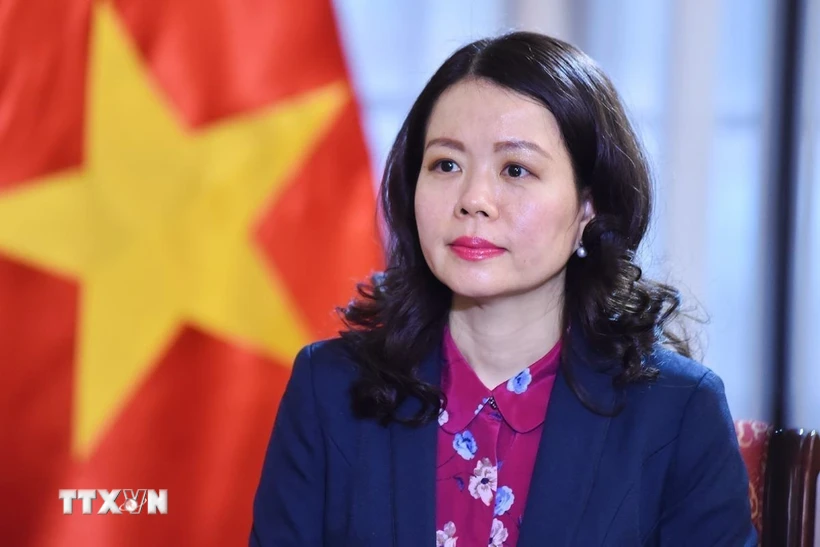
Deputy Foreign Minister Nguyen Minh Hang. (Photo: VNA)
Zalo Facebook Twitter Print Copy link
On the occasion of Vietnam completing its role as Co-Chair of the Southeast Asia Partnership Program (SEARP) for the 2022-2025 period of the Organization for Economic Cooperation and Development (OECD), Deputy Minister of Foreign Affairs Nguyen Minh Hang gave an interview to the press on the contents related to Vietnam's recent term as Co-Chair of SEARP.
- Vietnam has completed its role as Co-Chair of the Southeast Asia Program (SEARP) for the 2022-2025 period of the Organization for Economic Cooperation and Development (OECD). Could you please tell us about some of the main results achieved and the significance of these results?
Deputy Minister of Foreign Affairs Nguyen Minh Hang: The Southeast Asia Program (SEARP) is one of five regional programs of the OECD, first announced in 2014 under the initiative of Japan to support the economic reform process of Southeast Asian countries through sharing development experiences, promoting sustainable and inclusive economic growth through 13 areas of cooperation.
The period 2022-2025 marks the period when the world as well as the Southeast Asian region enters the recovery phase after the COVID-19 pandemic with unprecedented challenges such as global supply chain disruptions, non-traditional security challenges such as climate change, natural disasters, etc. increasingly serious. The fourth industrial revolution and breakthroughs in fields such as semiconductors and artificial intelligence (AI) also put countries, especially developing countries, before choices on renewing growth models and developing science and technology as new breakthrough drivers.
In that context, Vietnam, together with Australia and other countries, have identified three core priorities for SEARP, including: focusing on supporting Southeast Asian countries to overcome short-term economic shocks, especially the consequences of the COVID-19 pandemic by promoting appropriate fiscal and monetary policies, supporting micro, small and medium enterprises (MSMEs), and enhancing the resilience of supply chains; Supporting countries in the region to implement structural reforms to increase productivity, improve the investment and business environment, promote innovation and develop high-quality human resources, towards sustainable and inclusive growth; Strengthening cooperation between Southeast Asian countries and the OECD through sharing experiences, applying OECD standards and good practices to support countries in the region to move closer to international standards on governance, transparency and sustainable development.
Key areas of cooperation to be promoted include: enhancing economic resilience against shocks; promoting reforms to support private sector recovery; expanding trade and investment; promoting green and digital transformation.
Based on the agreed priorities as Co-Chairs, Vietnam and Australia have chaired and, together with members, promoted many important activities. Notably, the signing and implementation of the Memorandum of Understanding (MOU) on cooperation between OECD and ASEAN, the organization of Ministerial-level Regional Forums with practical topics closely related to the needs of countries in the region and in line with the priorities and strengths of OECD countries, the conduct of many studies, assessments, economic reports, the making of many appropriate and timely recommendations and capacity building support programs for ASEAN countries.
Accordingly, SEARP has truly contributed to the regional economic recovery process. Southeast Asia has become a bright spot in economic growth in the context of the world situation continuing to have many uncertainties. Moreover, through specific activities such as supporting small and medium enterprises (SMEs) to integrate into the global value chain, building digital infrastructure and developing the digital economy, reforming the tax system and enhancing the attraction and management of foreign investment, promoting green growth and the circular economy, etc., SEARP plays the role of a bridge to promote the reform process in countries in the region towards increasingly approaching the high standards of the world; at the same time, encouraging countries to cooperate more deeply and substantially with the OECD. To date, Indonesia and Thailand have become the first countries in Southeast Asia to initiate negotiations to join the OECD.
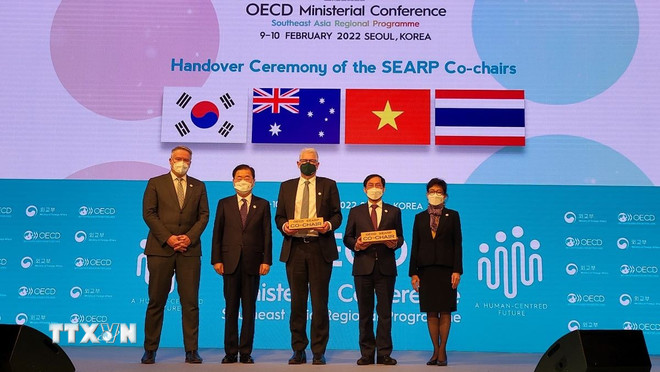
Vietnam and Australia officially took over the role of Co-Chairs of the SEARP Program for the 2022-2025 period from South Korea and Thailand. (Photo: Khanh Van/VNA)
Vietnam is proud to have contributed to making SEARP a truly regional cooperation pillar with substantial influence and long-term vision. The above positive results are highly appreciated by OECD countries and Southeast Asian countries; thereby continuing to affirm Vietnam's role, active contribution, responsibility as well as its ability to manage and lead in multilateral mechanisms.
In his speech at the SEARP Co-Chairmanship Transfer Ceremony, the OECD Secretary-General emphasized that under the leadership of Vietnam and Australia, SEARP has brought the relationship between the OECD and the Southeast Asian region to a new level.
- Could you please tell us what valuable lessons we have learned to serve the task of promoting and elevating multilateral diplomacy in the coming time?
Deputy Minister of Foreign Affairs Nguyen Minh Hang: It can be said that Vietnam's assumption of an important position at a high-standard international organization such as the OECD is a step to concretize the foreign policy of the 13th Party Congress and Directive 25-CT/TW of the Secretariat on promoting and elevating multilateral diplomacy to 2030.
From the practice of participating as Co-Chair of SEARP with extremely positive results as above, we can draw some lessons as follows: Firstly, in the context of the country entering a new era of development, an era of national growth, we need to proactively participate, promote our role, contribute to building and shaping multilateral institutions and international political-economic order; at the same time, promote the improvement of domestic institutions, policies and laws to improve the capacity to implement international commitments and agreements, thereby enhancing the country's position and prestige as well as mobilizing all resources for development.
Second, it is to persistently and steadfastly implement the consistent and continuous policy of our Party and State on actively and proactively integrating into the international community, raising the level of multilateral diplomacy, and promoting cooperation with prestigious and influential international organizations in the region and the world. We cannot achieve this without the close attention and direction of senior leaders and the proactive, close, and responsible coordination of ministries and branches in proposing and implementing cooperation contents in multilateral frameworks such as SEARP.
Third, President Ho Chi Minh once said: “Real strength is the gong, diplomacy is the sound. The bigger the gong, the louder the sound.” Vietnam has achieved impressive achievements in socio-economic development, especially demonstrating its self-reliance, rapid recovery and development after the pandemic, becoming a typical model in the region, recognized and highly appreciated by other countries. Thanks to that, cooperation activities within the framework of SEARP proposed and chaired by Vietnam have always received support and active and enthusiastic participation from all OECD member countries as well as countries in the Southeast Asian region.
Fourth, it is necessary to actively make the most of international resources. The valuable and timely support from OECD and its member countries, especially the co-chair country Australia, in terms of both financial resources and experience, has motivated Vietnam to propose and promote the implementation of ambitious cooperation programs; thereby successfully fulfilling its role as Co-chair. In the coming time, Japan, Korea and Australia have also agreed to continue providing financial support so that Vietnam can participate in deeper cooperation with the OECD, especially continuing to support Vietnam in sending staff to work at the OECD Secretariat in the next 3 years.
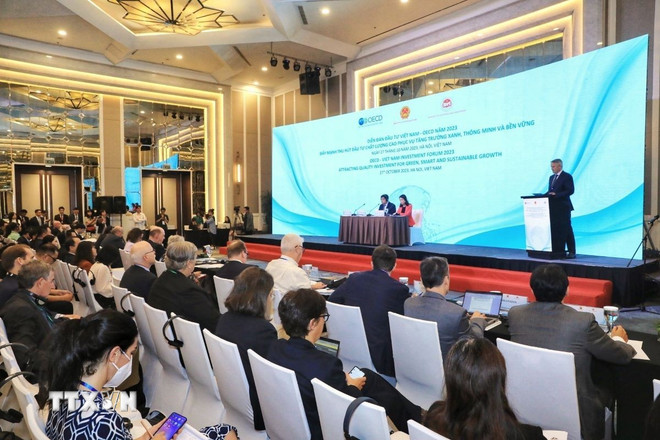
Vietnam-OECD Investment Forum 2023. (Photo: Tuan Anh/VNA)
With the success in the role of Co-Chair of SEARP for the 2022-2025 term, in the spirit of Resolution 59-NQ/TW of the Politburo on international integration in the new situation and the Conclusion of the Politburo on continuing to implement Directive 25-CT/TW of the Secretariat on promoting and elevating multilateral diplomacy, we will continue to promote our role, make more active and responsible contributions to international and regional multilateral mechanisms and forums, and take full advantage of opportunities from multilateral cooperation to serve the implementation of national development goals.
- Could you please tell us about the directions for cooperation between Vietnam and OECD in general and within the framework of SEARP in the coming time?
Deputy Minister of Foreign Affairs Nguyen Minh Hang: Our country is entering an era of growth with strong aspirations for development. Vietnam's goal is to become a high-income developing country by 2030 and a developed country by 2045.
In that process, Vietnam is in great need of exchange, experience sharing, financial and technical support from OECD, an organization that plays a particularly important role in building and shaping high standards of national governance, promoting economic reform trends at the global level. Vietnam hopes to receive support, experience sharing, and policy advice from OECD on economic reform, improving competitiveness, attracting investment, and approaching international standards of national governance and macroeconomic management.
In the immediate future, Vietnam will continue to coordinate with OECD to effectively implement activities within the framework of the Memorandum of Understanding on Vietnam-OECD cooperation, towards building the Vietnam-OECD National Program, deepening Vietnam's participation in OECD's specialized committees, enhancing information sharing and exchange, supporting the completion and publication of important economic reports to serve as a useful reference for planning Vietnam's long-term development policies, and actively preparing for the possibility of becoming an OECD member in the future.
Regarding the SEARP Program, Vietnam will continue to accompany Canada and the Philippines, the two Co-Chairs for the 2025-2028 term, in the spirit of cooperation, openness and sharing, making active and constructive contributions for a sustainable Southeast Asia, more closely connected with the international community, continuing to strengthen the role of SEARP not only as a bridge between the OECD and the Southeast Asia region but also making practical contributions to the common efforts for a rules-based economic order, for a greener, more sustainable and prosperous future.
- Thank you very much, Deputy Minister, for taking the time to discuss./.
(TTXVN/Vietnam+)
Source: https://www.vietnamplus.vn/viet-nam-tich-cuc-chuan-bi-cho-kha-nang-tro-thanh-thanh-vien-oecd-post1042661.vnp



![[Photo] Prime Minister Pham Minh Chinh attends the annual Vietnam Business Forum](https://vphoto.vietnam.vn/thumb/1200x675/vietnam/resource/IMAGE/2025/11/10/1762780307172_dsc-1710-jpg.webp)


![[Photo] Prime Minister Pham Minh Chinh attends the Patriotic Emulation Congress of the Ministry of Foreign Affairs for the 2025-2030 period](https://vphoto.vietnam.vn/thumb/1200x675/vietnam/resource/IMAGE/2025/11/10/1762762603245_dsc-1428-jpg.webp)






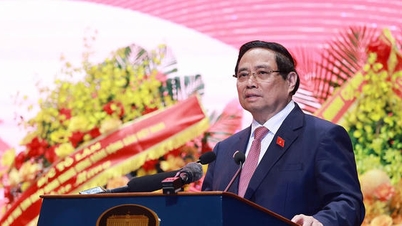



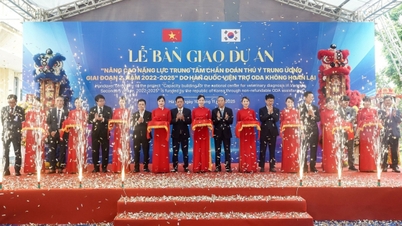

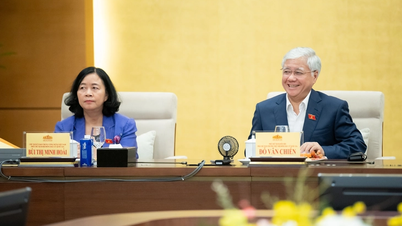





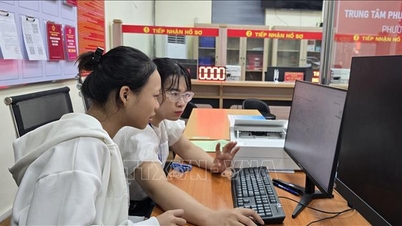







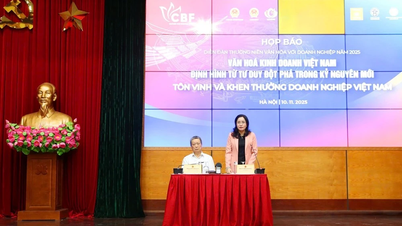


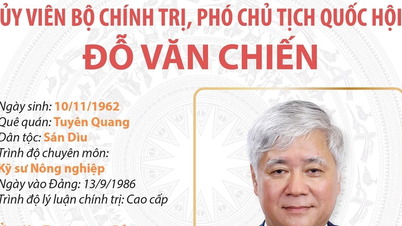






































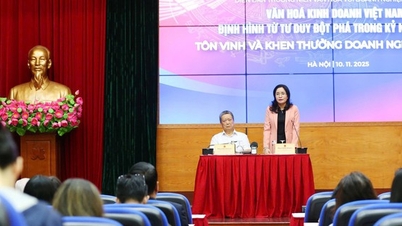
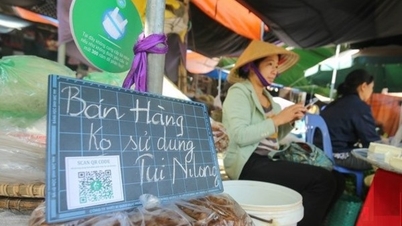






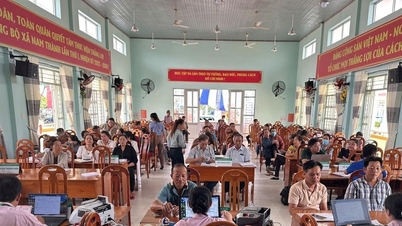
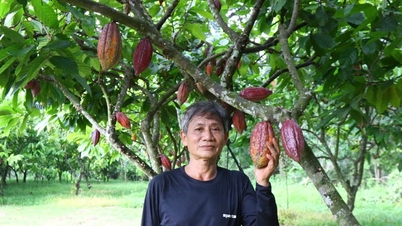

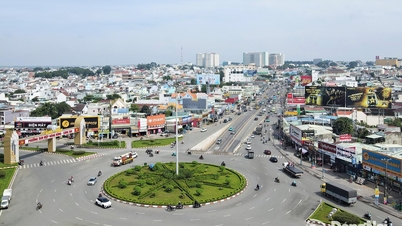

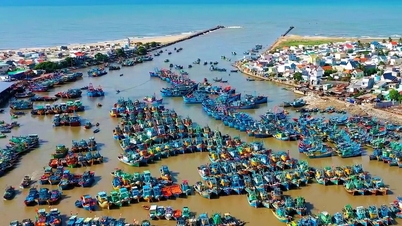

![Dong Nai OCOP transition: [Article 3] Linking tourism with OCOP product consumption](https://vphoto.vietnam.vn/thumb/402x226/vietnam/resource/IMAGE/2025/11/10/1762739199309_1324-2740-7_n-162543_981.jpeg)









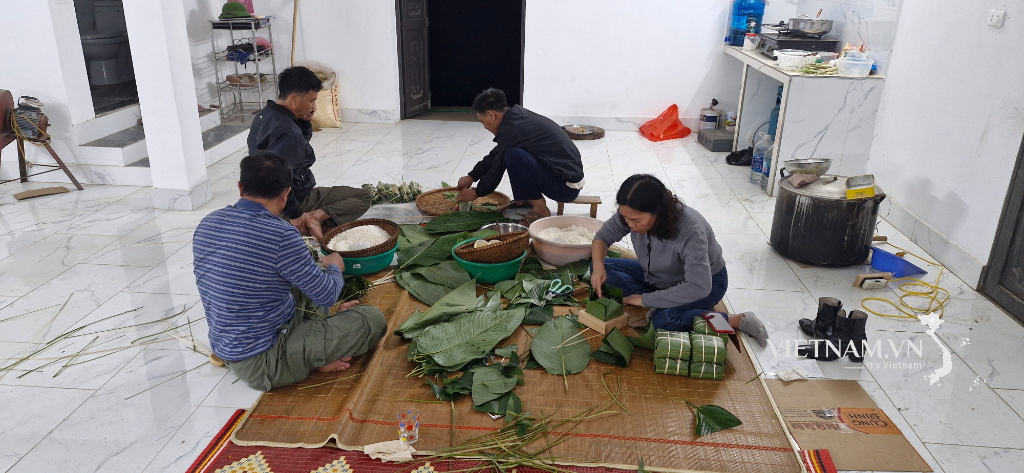

Comment (0)